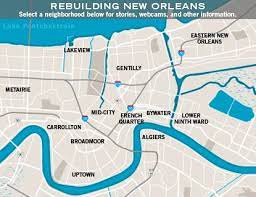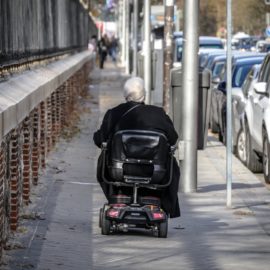
This is not environmental. It is not business. It is something that we, who live in Louisiana need to know. We do it to ourselves.
The U.S. Census Bureau’s figures for 2021 are a clarion call for Louisiana. As reporter Jeff Adelson noted in his excellent overview on Dec. 22, Louisiana is hemorrhaging people while neighboring states maintain long trajectories of population growth. The interpretations offered by experts in the article miss the mark: Neither the weather nor the pandemic is responsible for our demographic dilemma. The past couple of years have been unusually active for hurricanes, but population stagnation and decline in our state began decades ago. COVID-19 tragically hastened the deaths of many of our older citizens over the past two years, but this is not unique to Louisiana. Ditto for fertility: Low birth rates are a cause for concern across the U.S., not just here. People ultimately vote with their feet. Young people, business owners, and retirees are choosing other states over ours because our choices at the ballot box have favored too many candidates who eschew the investments necessary to turn this tide of depopulation: education, cities, image, and immigrants.
theadvocate.com
Look at our national rankings and the look to our legislators and do their actions work to raise these numbers or do the focus on non-related bills and debate. Our Attorney General is a good case in point.
Louisiana ranks extremely low for per-student expenditures for higher education (47) and LSU ranks extremely low among national universities (172). Texas and UT rank extremely high for both (6 and 36, respectively), illustrating that a turnaround, while possible, will not come cheaply. Cities are the economic engines of any state’s economy. For rural Louisianans in the northern half of our state who are beating a path out, we must offer incentives to resettle in or near our major cities, where opportunity is abundant. For the small number of out-of-staters who do move to Louisiana, New Orleans is the principal magnet. Its industries, private universities, architecture, health care and other urban amenities make it the jewel in our state’s crown. It requires state funding to match, especially for upkeep of its long-neglected infrastructure and upgrades to its public transportation system. Baton Rouge has excellent potential to become a second economic engine. The contrasts between our state capital and Texas’ are stark. In addition to hosting a nationally ranked university, Austin is a bustling technological hub with a lively nighttime scene. Downtown Baton Rouge mostly empties out every evening, in spite of an abundance of riches that other cities surely covet. Our Capitol complex is a national treasure. LSU’s campus and surrounding neighborhoods are stunning. Our Baton Rouge Mississippi Riverfront links the city with the world. It should boast major parks and gleaming towers housing major national corporations.
We vote and vote for both sides but those we elect don’t help us.
In spite of our state’s current image, Louisianans vote across the political spectrum. Less than one vote in 10 determines whether we lean blue or red. Yet instead of celebrating our diversity and fostering dialogue, too many of our elected leaders indulge in distortive rhetoric that undermines confidence in science and democratic institutions, driving away our best and brightest and discouraging those with resources from taking us seriously as a new home. Instead, our leaders should take their cue from the citizenry: What distinguishes Louisiana from almost everywhere else is that we know how to get along. Among most of us, intense discussions over politics or public health measures usually end with some good-natured ribbing, some beers, and a promise: to be continued. Portraying a more accurate image of who we are could transform Louisiana into a major destination for families seeking a new home, including immigrants. The benefits of increasing the numbers of Hispanic immigrants coming to our state have been noted in subsequent articles in the paper’s Census series. And attracting refugees would echo some recent state history. After the Vietnam War, Archbishop Hannan and the Catholic Church courted Vietnamese refugees to settle in Louisiana, resulting in an influx of thousands of families. These families were typical of immigrants more generally: led mostly by young couples in prime childbearing ages with virtually limitless ambition. It was a proud moment in Louisiana history when citizens stepped up to help resettle our allies after our shared tragedy in Indochina. We should do the same for our allies from Afghanistan who are now preparing to resettle in America.
We need to act now. We need to talk to each other. We need to make the state work to raise our numbers.
The time for change is now. If we continue with our current downbeat of distortion, division and tax cuts this rhythm will continue to syncopate with an upbeat of exodus. We need a new song. After all, demography is destiny.
We came from out of state to hep with grand-kids. If the grand-kids move we will to. So no state issues were the reason. However, I could not have come to the state to live other than in New Orleans. Fortunately my son and husband worked here.



